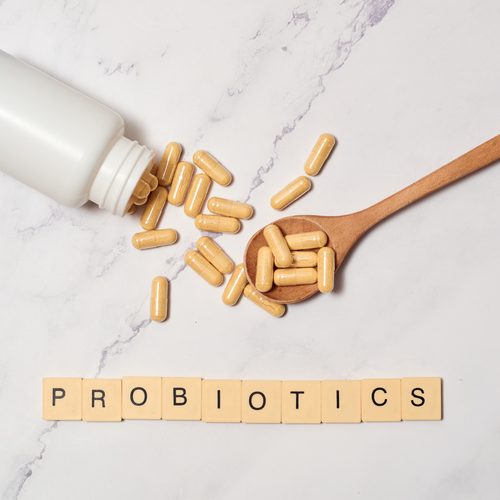What to remember :
- There are two types of nutrients: macronutrients and micronutrients, both of which are important for the body.
Carbohydrates, lipids and proteins provide energy and structure to our body.
Vitamins, minerals and trace elements are essential for biochemical reactions internal to the body.
A balanced diet is essential for maintaining health and well-being.
Each nutrient plays a specific role, allowing the human body to function optimally.
Definition: What are nutrients?
A nutrient is said to be “essential” when it is necessary for the proper functioning of a living organism. There are two types of nutrients: macronutrients and micronutrients.
Macronutrients : Energy Sources and Body Structure
Macronutrients are carbohydrates, fats, and proteins. They provide energy, measured in calories, which is essential for meeting the body's basic needs and energy expenditure related to daily activities and sports. They are provided by food and must be present at every meal, in addition to fiber, to create a complete and balanced diet.
#1 - Carbohydrates
Carbohydrates are often perceived as nutrients to be limited, especially in the context of fad diets. However, they play a central role in the functioning of the human body. As the primary energy source, they are essential for maintaining vitality, supporting brain function, and regulating metabolism. Indeed, they break down into glucose, which the body uses as fuel for cells, tissues, and organs. Glucose is particularly crucial for the brain, which relies almost exclusively on it as an energy source.
There are two categories of carbohydrates:
- Simple carbohydrates: These are quickly digested by the body and include natural sugars (such as those in fruit) and added sugars (found in sweets and sugary drinks). According to ANSES recommendations, they should be limited to 100g/day.
- Complex carbohydrates: longer molecules that take longer for the body to break down. They are found in grains, legumes, and tubers. They release energy gradually, helping maintain stable energy levels and avoid the spikes and dips in blood sugar often associated with simple carbohydrates.
#2 - Lipids
Lipids (or fats), like carbohydrates, are also targeted by diets of all kinds. However, they are just as important. Indeed, they fulfill several functions essential to human health: energy supply and storage, hormonal regulation, components of cell membranes, thermal insulation and protection, transport of fat-soluble vitamins, etc.
There are three types of lipids depending on their chemical structure:
- Saturated fatty acids ( especially in animal fats (milk, cheese, butter, meat, bacon, etc.) but also in coconut oil and palm oil) ,
- Monounsaturated and polyunsaturated fatty acids ( mainly present in plant products (oils, avocados, seeds and oleaginous fruits, etc.) and oily fish such as sardines, herring or mackerel) .
What about omega-3s : you may have already heard about them, they are essential and indispensable fatty acids, that is to say that we do not synthesize and that we must therefore provide them through food. They are found in oily fish as well as certain vegetable oils (flax, rapeseed, walnut, camelina) but also in foods labeled Bleu Blanc Coeur. These lipids are essential for cerebral, cardiovascular and inflammatory health. If the consumption of oily fish is not regular, it is recommended to supplement.
#3 - Proteins
Proteins are frequently associated with muscle function. However, their importance goes far beyond this: they participate in essential functions such as immunity, hormone production, enzyme activity, structural support, transport, regulation, storage, and cell signaling.
Essential, proteins are at the heart of our body's functioning, making every vital process possible. They are found in products of animal origin (meat, fish, eggs, dairy products) as well as plant-based products (cereals, legumes, seeds and oilseeds). The latter are deficient in certain amino acids (molecules that make up proteins). This is why, when eating a meal without meat, fish or eggs, it is important to combine legumes and cereals (e.g. rice + lentils, semolina + chickpeas) to provide the body with a complete protein.
Micronutrients: Essential in small quantities
These are vitamins, minerals, and trace elements. Although they don't provide energy, they are essential and indispensable for the body's proper functioning. A lack/deficiency affects the body's various functions and metabolisms. They are found in the various foods around us: fruits, vegetables, whole grains, meat, fish, eggs, dairy products, etc., but some are more present in our diet than others.
A balanced diet is essential to ensure an adequate intake of micronutrients, and in some cases, supplementation may be necessary, particularly for people with specific diets (vegans, for example, for whom vitamin B12 supplementation is strongly recommended ).
#4 - Vitamins
There are 6 types of vitamins, 4 of which are fat-soluble (soluble in fats): A, D, E, K, and 2 are water-soluble (soluble in water): B vitamins and vitamin C.
Each vitamin has specific functions, but all contribute to maintaining overall physiological balance, growth, and health. For example, vitamin C is involved in immunity, vitamin D plays a fundamental role in bone health, B vitamins are involved in energy production, nervous system health, and red blood cell formation, etc.
Vitamins A (in its retinol form), B12, D, and sometimes B vitamins, are found mainly in animal sources.
Plant sources (fruits, vegetables, whole grains, legumes, etc.) are rich in vitamins C, A (in its carotenoid form), B9 (and other B vitamins), E, and K.
#5 - Minerals and trace elements
Like vitamins, each mineral has specific roles allowing the optimal functioning of the body: structure of bones and teeth (calcium, phosphorus), energy production (magnesium), regulation of body fluids (sodium, potassium), etc. Some are not stored by the body such as magnesium (supplementation of which can be frequent or even continuous in cases of chronic fatigue or intense sport) while others, like sodium, can be. This is why it is recommended not to eat too much salt (salt being particularly present in cold meats, cheeses, preserves, prepared meals, etc.) to avoid the accumulation of salt in our cells and the consequences that can result ( water retention , edema, high blood pressure, etc.).
Although present in very small quantities, trace elements are still important and play a role in the proper functioning of the body, particularly for enzymatic reactions. There are 14 of them, some of which may be at risk of deficiency: iodine, iron, copper, zinc, and selenium in particular. If necessary, supplementation is considered if a deficiency is confirmed by blood tests.
Minerals and trace elements are found in both animal and plant sources in varying proportions: iodine in seafood, iron in meat, selenium in Brazil nuts, etc.
Supplemental nutrients
#6 - Water
Water, this vital beverage, plays a crucial role in all physiological functions: hydration, transport of nutrients, elimination of waste, thermoregulation, etc. Hydration comes from the water we drink, whether still or sparkling, but also from the food we consume. The recommended quantities are approximately 2.5L-3L per day distributed as follows: 1L through our diet and 1.5L-2L through what we drink. Of course, these water intakes can be revised upwards in case of extreme heat or physiological conditions that require it (athlete, pregnancy, pathology, etc.).
#7 - Dietary fiber or prebiotics
Dietary fibers are plant compounds that are indigestible by human enzymes, but essential for health. Indeed, one of their roles is to feed the beneficial bacteria in the gut microbiota. This is why they are called prebiotics.
They are divided into two types:
- Soluble fibers (oats, fruits, legumes): they form a gel that slows digestion, helps reduce cholesterol and stabilize blood sugar.
- Insoluble fibers (whole grains, vegetables): they promote intestinal transit.
Thus, they contribute to digestive health, weight management, and the prevention of cardiovascular diseases. A recommended daily intake is approximately 25-30 g.
DIJO essentials to stay in shape
At DIJO, we have created a synergy of three essential supplements to boost your energy and well-being every day:
- Magnesium Complex and Vitamin Complex : allies to reduce fatigue and support optimal energy metabolism.
- The Essential Probiotics : for balanced intestinal flora, the key to harmonious digestion.
This complete trio works deep down to improve your digestion, recharge your vitality, and provide optimal comfort day after day. Adopt a simple and effective health routine for lasting energy! ✨
MM-product-1
Sources :
[1] Anses, 03/18/2024, Sugars in food, consulted from:https://www.anses.fr/fr/content/sucres-dans-lalimentation
[2] Anses, 02/03/2022, Omega 3 fatty acids, consulted from: https://www.anses.fr/fr/content/les-acides-gras-omega-3
[3] Anses, 24/01/2013, Proteins, consulted from: https://www.anses.fr/fr/content/les-proteines#:~:text=Essentielles%20%C3%A0%20l'organisme%2C%20elles,la%20digestion%20(enzymes%20digestives).
[4] Grillo, A., Salvi, L., Coruzzi, P., Salvi, P., & Parati, G. (2019). Sodium Intake and Hypertension. Nutrients , 11 (9), 1970. https://doi.org/10.3390/nu11091970














